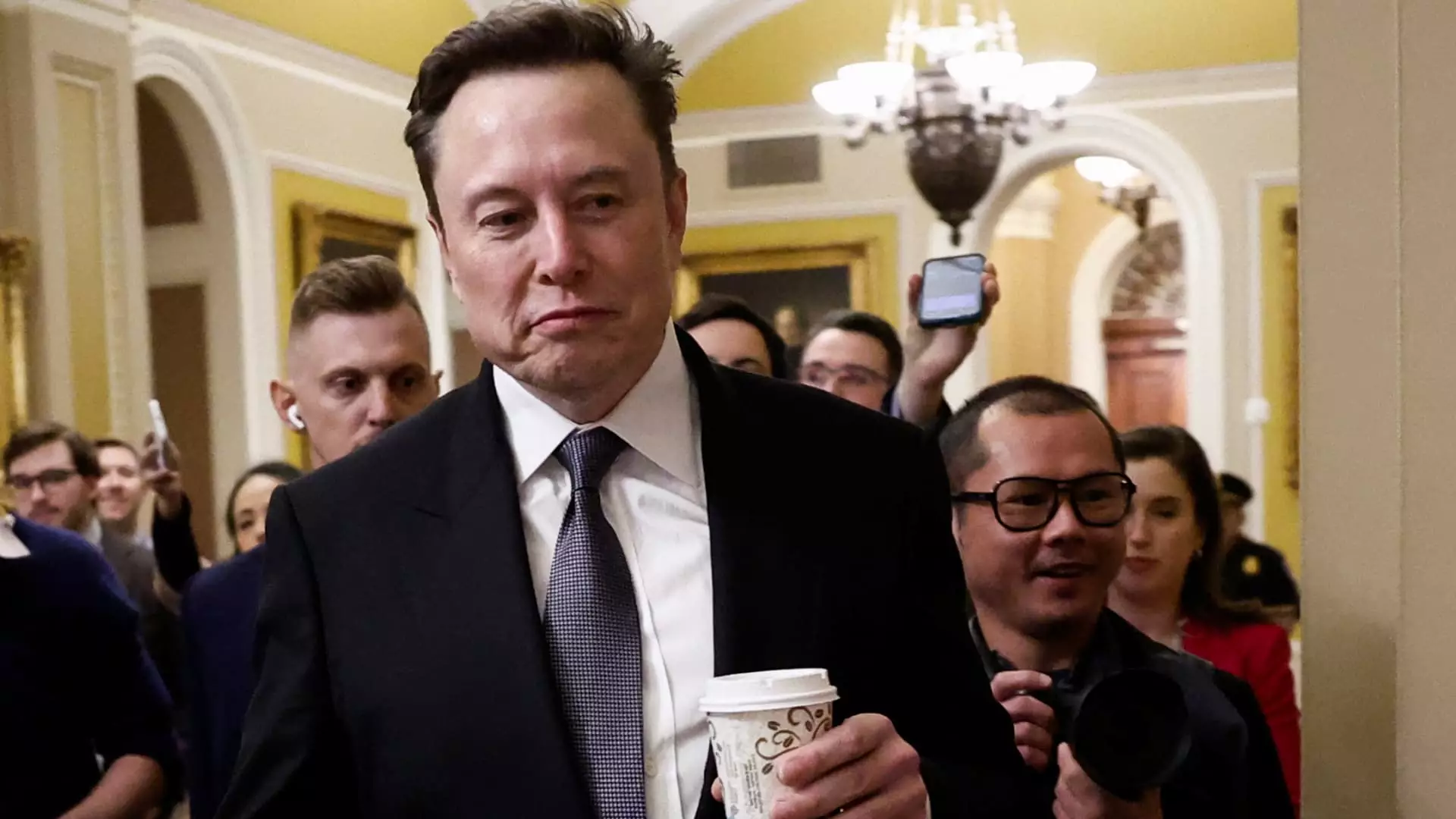The dynamics of modern governance, particularly in the United States, often intertwine with powerful business interests. A recent episode involving House Democrats Jim McGovern and Rosa DeLauro underscored the often contentious relationship between politics, business, and foreign affairs. At the center of this controversy is Elon Musk, the CEO of Tesla and SpaceX, whose actions and affiliations have raised critical questions about U.S. policy, particularly concerning China. This article aims to provide a nuanced analysis of the events surrounding the failed bipartisan government funding bill, the implications for U.S.-China relations, and the broader consequences of Musk’s influence in political landscapes.
In a bid to introduce more stringent regulations on American investments in China, a bipartisan bill was proposed but subsequently derailed, as noted by Democratic representatives McGovern and DeLauro. Their criticism reflects a growing frustration among lawmakers who perceive Musk’s interests as conflicting with national security concerns. The proposed legislation aimed to ensure that crucial technologies, particularly in artificial intelligence and quantum computing, would remain developed and utilized within the United States. The failure to pass this bill has sparked debates about the extent to which corporate influence can shape legislative outcomes.
The assertion made by McGovern that Musk’s influence precipitated the bill’s failure highlights the underlying concern that the business magnate’s operations in China pose significant risks. Tesla’s establishment of manufacturing facilities in China without local partnerships—a rarity among foreign automakers—has raised eyebrows, suggesting a strategy focused on maintaining favorable relations with the Chinese government at the expense of U.S. interests.
Musk’s operations in China are emblematic of a larger trend in global business: the necessity for market access often trumps national loyalty. Tesla’s production capabilities in Shanghai are a testament to the lucrative automotive market in China; however, this comes with the caveat of aligning with Chinese governmental interests, which can sometimes conflict with U.S. geopolitical strategies.
Critics, including DeLauro, have pointed out Musk’s need for Chinese government approvals for various projects, underscoring the potential for divided loyalties. This is particularly concerning given his ambition to establish an AI data center in China, a move that could have far-reaching implications for U.S. security. The dependence on Chinese favor, as articulated by McGovern, exemplifies the precarious balancing act businesses must perform in today’s interconnected global economy.
Political Ramifications and the Trump Factor
The intertwining of Musk’s business ventures and political maneuverings has garnered increasing scrutiny, particularly in light of his recent collaboration with former President Donald Trump. Critics suggest that Musk’s allegiance appears to skew towards those who enable his agendas, raising alarms about the implications for American domestic policies as well as international relations. When Trump openly sought to dismantle the funding bill, it illustrated how personal loyalties can bleed into critical legislative processes, further complicating the narrative surrounding corporate governance.
Musk’s response to criticisms, notably his derogatory comment about DeLauro, encapsulates the often abrasive nature of contemporary political discourse influenced by social media. The transition of Twitter to X and Musk’s role in re-establishing Trump’s political capital has blurred the lines between tech influence and political power, revealing a complex relationship that warrants closer examination.
The challenges posed by the intersection of technology, business, and international relations highlight the urgent need for balanced governance that prioritizes national interests without stifling innovation and economic growth. The recent events involving Musk serve as a cautionary tale about the potential ramifications of unchecked corporate power in the political arena.
As discussions concerning the regulatory landscape surrounding China continue, it is imperative for lawmakers to tread carefully, ensuring that strategies align with national security interests while also fostering an environment conducive to sustainable growth and competition. The events of the past weeks serve as a reminder that the stakes are high, and the implications broader than a single funding bill. The ongoing narrative will require vigilance, open dialogue, and, above all, a commitment to the principles that govern democracy and industry alike.

